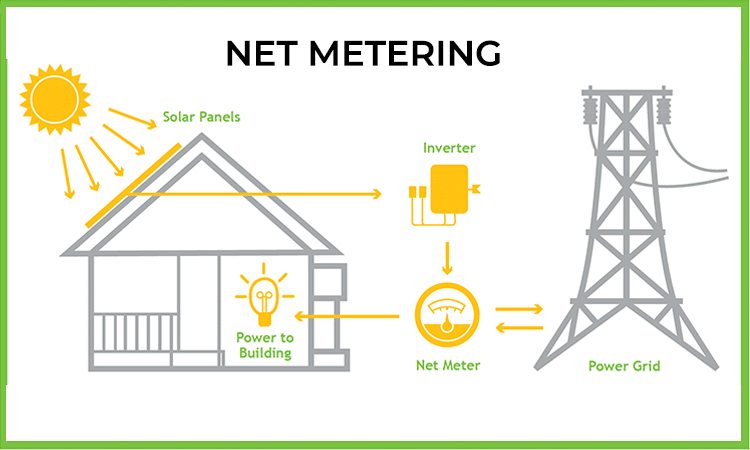
Many Pakistanis have questions about net metering since net metering is becoming a hot topic. These include “What is net metering?” “Net metering rates in Pakistan” and “How do I apply for net metering?” Pakistan is experiencing an electricity crisis due to an insufficient supply of electricity, which is causing load shedding. As a response to this problem, the government has introduced a program known as “net metering” for customers who build their own renewable energy facilities.
The net metering is a billing system in which solar system users can sell back the excessive electricity back to Wapda and get credit in bills. They can use it to export any extra electricity they produce back to the national grid. Without net metering, people are wasting the excess amount of electricity they are generating through solar systems but with net metering, they can get credit for extra electricity with a bidirectional meter which records the extra excess generation and gives credit on the electricity bill.
With net metering, you can have a bidirectional meter and sell the extra electricity the solar system is producing after office hours to Wapda or KElectric. For example, if you have an office in Pakistan that is open from 9 a.m. to 6 p.m. every day and you install a solar system on it, the excess electricity that the system can produce is wasted after working hours because the office will be closed.
The National Electric Power Regulatory Authority (NEPRA) of Pakistan established net metering in 2015 with some renewable energy systems regulations.
Here’s how it works:
Eligibility: Customers that have installed renewable energy systems with a capacity of between 1 kW and 1 MW are eligible for net metering.
Application: The consumer notifies the local power distribution company (DISCO) of their renewable energy installation and submits an application for net metering.
3 Phase Meter Installation: A bidirectional meter, installed by the DISCO, tracks both the amount of electricity used from the grid and the surplus that is exported back to it. In the event that they produce more electricity than they need, their account will be credited.
Credit: The extra electricity produced is credited at the appropriate tariff rate and may be carried over for a maximum of one year.
By allowing customers to offset their electricity costs and supply extra energy to the grid, net metering has made it easier for Pakistani to have solar systems installed on their rooftops and lower their electricity bills. It encourages energy independence, lowers carbon emissions, and aids in achieving the nation’s sustainable development objectives.
Solar Panel System is a Viable Investment
The solar system investment can get back quicker with a net-metering system. A conventional solar system ignores all excess energy produced, so it is effectively squandered. In a net metering system, excess electricity offsets the owner’s future energy usage, resulting in lower electricity bills. A decrease in energy costs makes solar energy a more palatable and attractive option, allowing solar system investors to recoup their investments more quickly.
